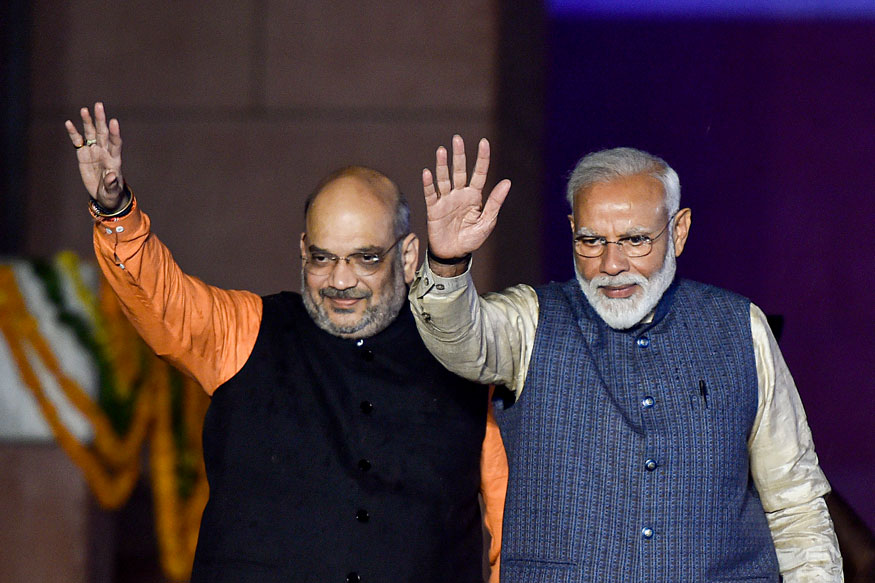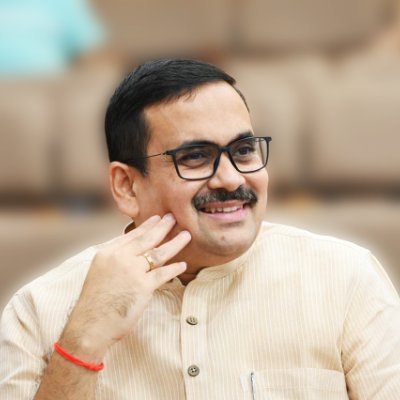Remembering Dr Syama Prasad Mookerjee, ‘our party’s first national president who had attained martyrdom for this very demand of removing Article 370’, Union Home Minister Amit Shah, while replying to the debate on Jammu & Kashmir Reorganisation Bill in the Rajya Sabha, made a crucial point – he reminded everyone present that, ‘In every election manifesto since its founding in 1951 to 2019, my party has reiterated its demand and promise for removing Article 370.’ Shah pointed out how since the Jana Sangh days when Syama Prasad Mookerjee had called for the abrogation of this Article – which was temporary in nature – to the present, when Narendra Modi displayed stoic determination to remove it, the stand has been consistent and unwavering. The Jana Sangh’s manifesto for the first general elections in 1951-52 spoke of the need to integrate Kashmir with Bharat ‘like other acceding states and not [be] given any special position’; this, it argued would ‘end the state of uncertainty about Kashmir’s future’. Dr Mookerjee clearly saw that with Article 370 in place, separatism and subversion by external elements would receive a headwind. Through the decades, that demand for abrogating 370 was repeatedly raised, discussed and debated by the party and its thousands of workers and leaders – down to 2019 when the promise was reiterated again. BJP’s Vision Document for the 2019 general election clearly spoke of the need to remove all obstacles that come in the way of development in Jammu & Kashmir and reiterated “our position since the time of Jana Sangh to the abrogation of Article 370.” When he launched the party’s campaign for the 2014 elections, in a rally in Jammu in December 2013, Narendra Modi had called for a debate on how Article 370 had prevented the state from achieving its full potential and prevented it from channelising its rich resources towards generating prosperity for its own people. He had argued that by harping ad nauseam on the need for a separate state, the leaders from the Valley had, in fact, only promoted and supported separatism without really working for the welfare of the people. Modi’s reiteration was a part of that long continuum and struggle, in which legions of Jana Sangh and RSS karyakartas, cadres and activists kept the debate alive. In 2019, in a little over two months after taking oath for the second time as Prime Minister, Modi kept his promise. BJP’s Vision Document of 2019 also spoke of the need to work to ‘provide adequate financial resources to all regions of the state’ which Article 370 prevented. The reasons for this demand for abrogation, since the days of the Jana Sangh and later, had to it a clear dimension of development. In one of his letters to Nehru, while discussing Article 370, Dr Mookerjee had pointed out how a sizeable section of Muslims in the state was also demanding that this article be repealed because they wanted greater integration with India. This dimension of development was something that was hardly ever focused upon. Those who wanted to continue their political and ideological monopoly over the people of Kashmir to ensure their prosperity at the cost of theirs – as Amit Shah caustically reminded the House, Article 370 has only benefited three families in the Valley while preventing the fruits of development from reaching the majority – have kept silent on this dimension of development. The large ‘NGO brigades’ that these political parties have spawned over the years to harangue, hector and badmouth India on the world stage and on multilateral platforms to peddle false narrative of human rights violations in Kashmir, have also tried to obfuscate this development dimension. In his reply, however, Shah resoundingly harped on it, he asked questions which the Congress, the communist parties and the Valley-centric parties should have attempted to answer long back. In this context too, Shah’s reply is historic, it brought forth the reality of Article 370 which was that it was actually detrimental for the people of the state. Shah spoke of how full political rights had not percolated to the people, for the last 70 years, with no Panchayat elections held, thus depriving forty thousand sarpanches – village headmen – from functioning. It was only now, after President’s rule, that elections were held and sarpanches were elected and have been actively pushing the development agenda. This rejuvenation of grassroots democracy in the state was in itself a major blow on separatism. He pointed out how education suffered in J&K since educational institutions from across India could not establish projects there, he spoke of how, since anti-corruption laws were not applicable to the state, the resources sent for its development from the Union government was invariably siphoned off at the altar of corruption, he argued how because of this restrictive Article 370, both poverty and corruption have had a field day in the state. Shah also spoke of how there was a shortage of doctors and quality healthcare in the state because doctors from across the country did not want to come here as they could not have full access to rights here due to the continuation of Article 370. Shah drove home the point of how with the removal of 370, the 10 per cent economic reservation arrangement would automatically apply to the state. More crucially, he also brought home the point that because of this disturbing Article, OBCs of the state have been deprived of reservations, and Dalits and tribals too were denied their share of political reservations. It was a discriminatory Article; it has discriminated against people of the state, he emphasised, and therefore, it had to go. “We want to embrace the youth of the Valley,” Shah reiterated, “We want to work to give them quality education and a promising future, we want to give them quality healthcare and opportunities for their livelihood, the development narrative has percolated across India, we want that narrative to spread all over Jammu & Kashmir, and for that to happen Article 370 needs to go,” Shah argued. Directly hitting at the high-priests and mullahs of separatism, who keep provoking and misleading the youth of the Valley, Shah pointed out how those who provoke violence and fan the fires of separatism in the minds of the youth of Kashmir have ensured that their own children are well ensconced in universities and schools in London and America. That is why these separatists are not worried. Shah hit out, “Since they have made comfortable arrangements for their children, but the youth of the Valley continue to suffer from illiteracy and lack of development due to the continuance of Article 370.” This development-deprivation dimension of the 370 narrative has always been smothered, especially by those who have a vested interest in perpetuating dynastic and exploitative politics of opportunism and fear in the Valley. But Modi and Shah have brought out the truth of how Article 370 has actually gnawed away at the foundations of the state and restrained the flow of growth, opportunity, equity and justice for its people. The process that began with Dr Mookerjee and intensified over the years has now reached the peak of culmination and realisation under PM Modi, who has emerged as the great unifier. The Kashmir narrative has finally been liberated from the asphyxiating stranglehold of subversion and untruth.
(The author is Director, Dr. Syama Prasad Mookerjee Research Foundation. The views expressed are personal)
(The views expressed are the author's own and do not necessarily reflect the position of the organisation)


